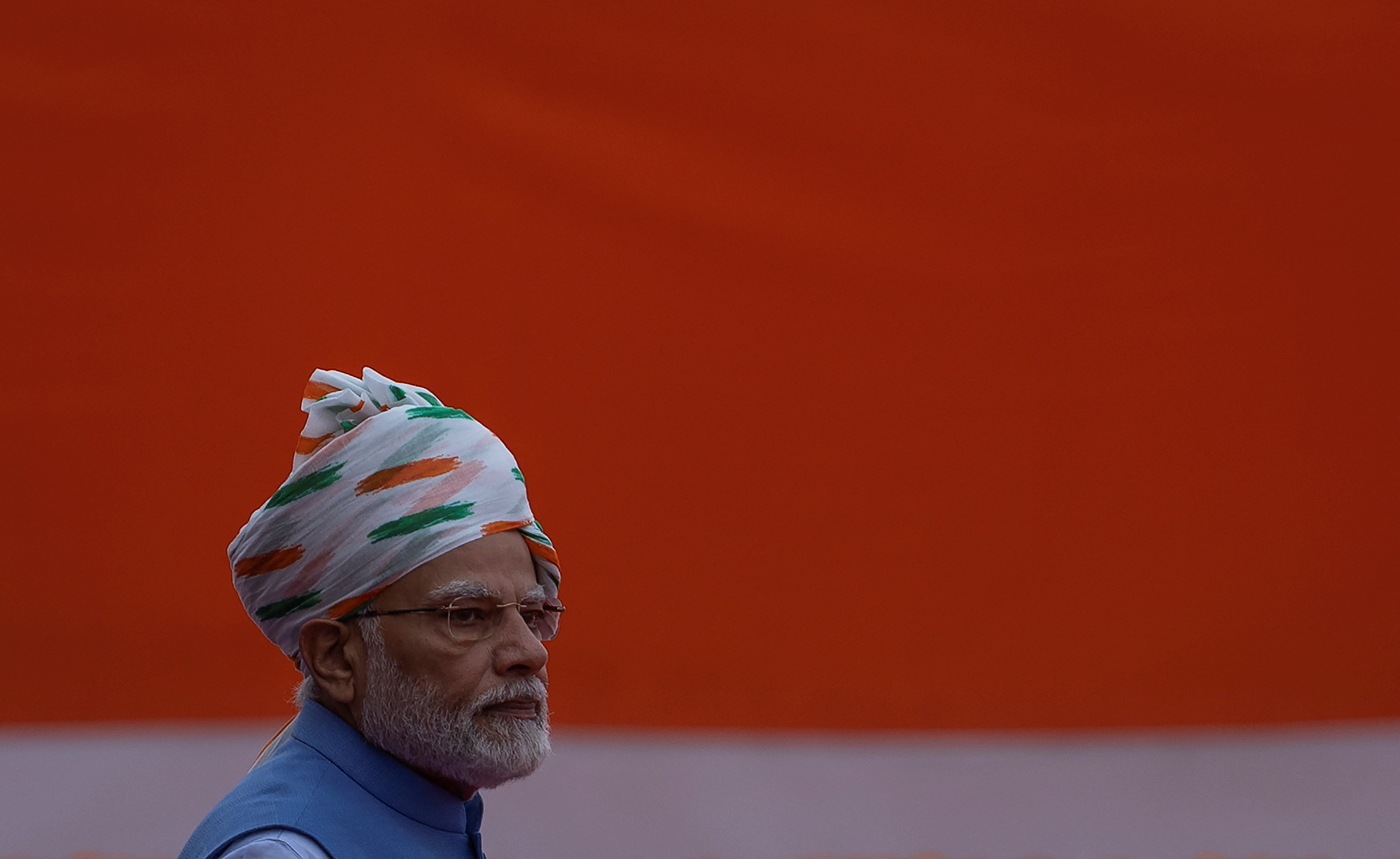
India will aim to become a developed nation within 25 years, Prime Minister Narendra Modi said in a national day address, with policies to support domestic production in power, defence and digital technology.
Wearing a flowing, cream-coloured turban printed in the colours of the Indian flag, Modi on Monday addressed the country from New Delhi’s 17th-century Mughal-era Red Fort to mark the 75th anniversary of India’s independence from British rule.
“We must turn India into a developed country in the next 25 years, in our lifetime,” said the 71-year-old leader in his 75-minute-speech in Hindi.
“It is a big resolution, and we should work towards it with all our might.”
Modi said the world’s view of India was changing and it was looking towards the country to help resolve global issues.

He said India will be guided by the ideals of self-reliance and the spirit of international partnership to attain excellence in science and technology, set up industries, and attain food and energy security.
He said billions of dollars in investment were flowing into the country turning it into a manufacturing hub.
India’s efforts have already launched it into the ranks of leading countries in information technology, pharmacy, space science and civil nuclear energy.
But the World Bank currently categorises India as a lower-middle income economy – meant for countries with a gross national income per capita of between $1,086 and $4,255. High-income countries, like the United States, have a per capita income of $13,205 or more.
India is the world’s sixth-largest economy and is expected to grow at more than 7 percent in the current fiscal year ending in March 2023 – the fastest among major economies.
Many experts say India’s economy could expand to become the world’s third-largest by 2050 after the US and China, although per capita income, currently about $2,100, may remain low compared with many countries.
With about 1.4 billion people, India is expected to surpass China as the world’s most populous country next year.
Countries like the US already see India as a future challenger to China’s dominating influence in Asia and beyond.
US President Joe Biden on Sunday congratulated India for its national day and said the US and India were “indispensable partners” that would continue to work together to address global challenges in the years ahead.
In his speech, Modi made no reference to India’s tense ties with immediate neighbours Pakistan and China, nor any steps to improve relations with them.

Modi said millions of people across the country were commemorating the 75th anniversary of independence by hoisting orange, white and green national flags at their homes and businesses for three days as part of a government campaign “of awakening the spirit of patriotism in every heart”.
India’s parliament, the presidential residence, national monuments and other government offices blaze with multicoloured lighting.
Modi said the journey of the past 75 years had seen ups and downs, with India battling against all odds with resilience and perseverance. He asked people to remove any trace of colonial mindset.
Modi pledged to fight corruption and nepotism in the country’s politics, which he said were acting as “termites” eating away the gains of development.
The main opposition Congress party accused the Modi government of leaving the opposition parties out of the celebrations.
“There were special functions in Parliament’s historic Central Hall to mark the 25th, 50th and 60th anniversary of India’s independence,” said Jairam Ramesh, an India National Congress party spokesman.
“Sadly, nothing like that has been organised for the 75th anniversary, which has been reduced to an occasion to glorify the Sarvagyaani,” using a term meaning “a person who knows all” in reference to Modi.
In his speech, Modi called for people’s unity to move forward but did not respond to experts and critics who say the country has been gradually departing from some commitments and argue the backsliding has accelerated since Modi came to power in 2014.
They accuse his populist government of using unbridled political power to undermine democratic freedoms and preoccupying itself with pursuing a Hindu nationalist agenda.







